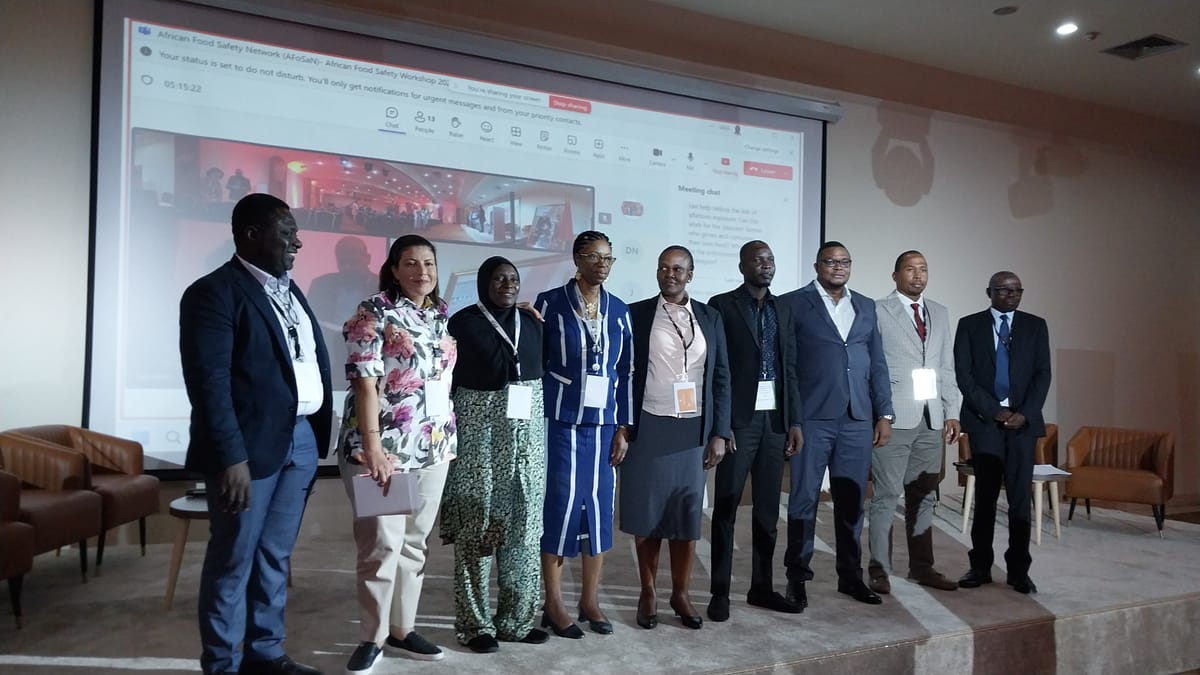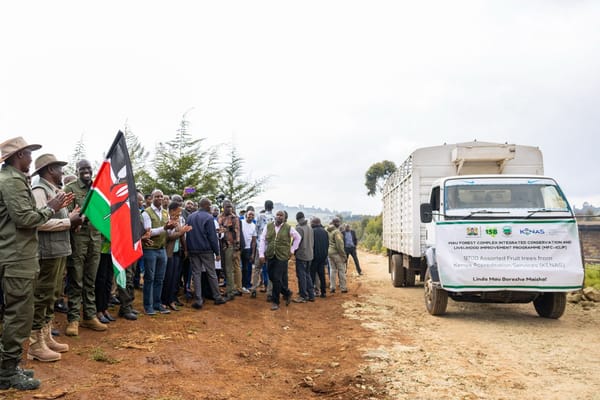KENAS at the Third Africa Food Safety Workshop 2024: Promoting Accreditation for a Safer Food Industry

The Third Africa Food Safety Technical Meeting and Africa Food Safety Workshop 2024, held from 7th to 11th October 2024 in Marrakech, Morocco, was a significant event that brought together over 110 food safety experts and stakeholders from across the African region. Hosted by the National Office of Food Safety (ONSSA) of Morocco and supported by notable partners like the International Atomic Energy Agency (IAEA), United States Department of Agriculture (USDA), and the African Union (AU), this meeting was a platform for collaboration, knowledge exchange, and advancing food safety standards in Africa.
The Role of Accreditation in Food Safety: Message by Ms. Lucy Namu
Ms. Lucy Namu, KENAS's Chief Manager of Laboratories, delivered a vital message at the event, emphasizing the critical role that accredited laboratories play in ensuring food safety and quality. She noted, “Accredited laboratories help food business operators to access and sustain national and international markets. International Mutual Recognition Arrangements facilitate trade by building mutual confidence between countries on conformity assessment procedures and by facilitating the acceptance of goods and services everywhere based on accreditation.”
This powerful statement underscores how accreditation goes beyond mere compliance; it acts as a bridge to global markets, enabling food businesses to gain credibility, trust, and widespread acceptance in an increasingly interconnected world.
Importance of Accreditation in the Food Business
Accreditation is essential in the food industry as it serves as a reliable benchmark for safety, quality, and consistency. Here are some reasons why accreditation is crucial:
- Assurance of Quality and Safety: Accredited laboratories follow internationally recognized standards to ensure that food products are tested, verified, and meet the required safety and quality benchmarks. This reduces risks and enhances consumer protection.
- Market Access and Global Trade: Accreditation provides a competitive edge for food businesses, enabling them to access national and international markets with ease. It builds trust and confidence among trading partners, facilitating smoother cross-border transactions and compliance with regulations.
- Credibility and Trust: For consumers, buying food products tested by accredited laboratories means they can trust the safety and integrity of what they consume. For businesses, it means reduced liability and enhanced brand reputation.
- Cost Savings: Accredited laboratories help businesses identify quality issues early, preventing costly recalls or market rejections. This proactive approach saves time and resources, ensuring a more streamlined production and supply chain process.
Opportunities for Conformity Assessment Bodies (CABs) and Customers
For CABs, the path to accreditation presents numerous opportunities:
- Enhanced Recognition: Achieving accreditation elevates the reputation of CABs, positioning them as trusted entities that comply with international standards.
- New Business Opportunities: Accreditation opens doors to broader client bases and partnerships, providing opportunities to serve businesses that require high-quality testing and certification.
- Credible and Reliable Services: For customers, working with accredited CABs means they are assured of consistent, high-quality services that meet their needs.
KENAS is ready to support CABs in their journey toward accreditation. We offer a comprehensive accreditation process that includes technical training, capacity building, and guidance on meeting the required standards.
Why Accreditation Cannot Be Ignored in the Food Industry
The importance of accreditation in the food business cannot be overstated. In an industry where safety and quality directly impact consumer health, cutting corners is simply not an option. Accreditation:
- Promotes Consumer Confidence: Ensures that food products meet the highest safety standards, making them safe for consumption.
- Facilitates Compliance: Helps food businesses comply with regulatory requirements, thereby avoiding legal issues and financial losses.
Builds Industry Standards: Creates a level playing field where all players adhere to consistent standards, leading to a safer food supply chain for everyone
KENAS's Commitment to Accreditation
As a leading accreditation body in Africa, KENAS remains committed to guiding food businesses and CABs on their journey to achieving and maintaining accreditation. We understand the complexities of the food industry and the stringent requirements that must be met to gain market trust. KENAS is prepared to walk this journey with businesses, providing the expertise, support, and solutions they need to excel in the competitive food industry landscape.
Enhancing Partnerships for a Safer Food System
The Third Africa Food Safety Technical Meeting/Africa Food Safety Workshop also highlighted the importance of networking among food safety stakeholders. It served as a valuable opportunity to learn, share experiences, and explore partnerships within the African Food Safety Network (AFoSaN). Through these collaborations, we aim to create a unified approach to food safety that will benefit not only Africa but also global trade and consumer protection.
Conclusion
Accreditation is more than just a formal recognition; it is a crucial tool for food safety, trade facilitation, and consumer trust. As the food industry continues to evolve, maintaining high standards through accreditation is essential for sustaining quality, accessing new markets, and ensuring public health. KENAS remains dedicated to driving excellence in the food sector and looks forward to empowering more food businesses and laboratories to achieve their accreditation goals.



